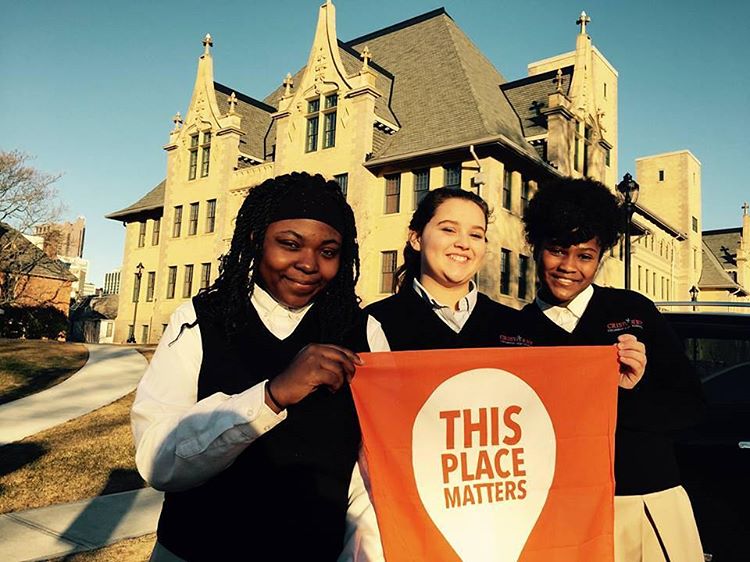Save the Places that Matter to You on #GivingTuesday

Thank you for being part of Ohio’s historic preservation and community revitalization movement. Like us, you want to save the places where your most cherished memories took place. Whether it’s in your hometown, or the place you call home now, we know how important these places are to you. On #GivingTuesday, November 29th, donate and say, “I want to save the places that matter to me and my family!”
What Your Donation Means:
Saving the Places that Matter – Heritage Ohio has worked to save hundreds of beloved historic buildings throughout Ohio. By returning these treasured buildings to use, we help your favorite small businesses succeed, as well as improve the quality of life in your community.
Building Community – All of us want strong, prosperous communities to live and work in. Heritage Ohio helps communities like yours succeed by using the unique buildings and talent that reside in your town. We provide the information and assistance needed to take the next step and make smart decisions that allow your community to thrive.
Living Better – Heritage Ohio advocates for you and your community at the local, state, and national levels. We are letting legislators and officials know what we need to make Ohio the best place to raise our families, create meaningful careers, and building a better life for all Ohioans.
How to Donate:
You can donate online now by clicking the button below:

If you would prefer to send a check, please mail your donation to:
Heritage Ohio
846 ½ East Main Street
Columbus, OH 43205
GIVE NOW | SAVE THE PLACES THAT MATTER
![]()
Webinar: How Autonomous Cars Will Reshape Our Cities
Autonomous cars are coming. What was once a futuristic concept, often associated with pop culture films like Minority Report, is not only possible, but is coming very soon to a roadway near you. Autonomous cars are precisely what the term “disruptive technology” describes. It is technology that will fundamentally change much of what we know about personal transportation – changing our habits, our preferences, and our opportunities, and nothing will be more impacted by these changes than our cities.
This technology is not only being rapidly developed, it is being defined by the largest and most influential corporations in the world. Much-publicized efforts by Google have already resulted in over 1 million self-driven test miles in California, with recent expansion to Texas. Subsequently, Apple Inc., numerous car manufacturers, and leading automotive technology companies have joined in the accelerating efforts to refine this technology and bring it to market. Most recently, Uber has set up its own dedicated lab to create a fleet of driverless vehicles, creating a stir in the industry by hiring over 40 top robotics researchers from a competing lab at Carnegie Mellon to jump start their process. Manufacturers such as Tesla have already implemented “autopilot” technology in vehicles, which is seen as a significant step toward introducing consumer autonomous technology.
As city planners, we must be on the forefront of understanding this technology and how we can prepare for the potential impacts. Our research team is concerned by the general lack of acceptance and understanding that we’ve encountered among planning professionals regarding the near-certain implementation of this technology. In response, we will outline the issue in the context of the planning profession, including the following topics:
- Disruptive Urban Technologies – a brief history
- Technology Today – where we are now (already pretty far along, by the way!) and what the next few years are likely to hold
- Potential Adoption Trends – who, what, and where
- Local and Regional Impacts for Planning – case studies of potential impacts ranging from regional transportation networks to site-specific urban neighborhoods
This presentation will include modeled scenarios for potential impacts to roadway networks, neighborhood development, and site design. Specific planning tasks such as comprehensive planning and zoning code revisions will be discussed as well, as they will be instrumental in preparing for -and adapting to- this emerging technology.
Heritage Ohio Members Register Here
Not a Member? Join Heritage Ohio Today.
![]()


